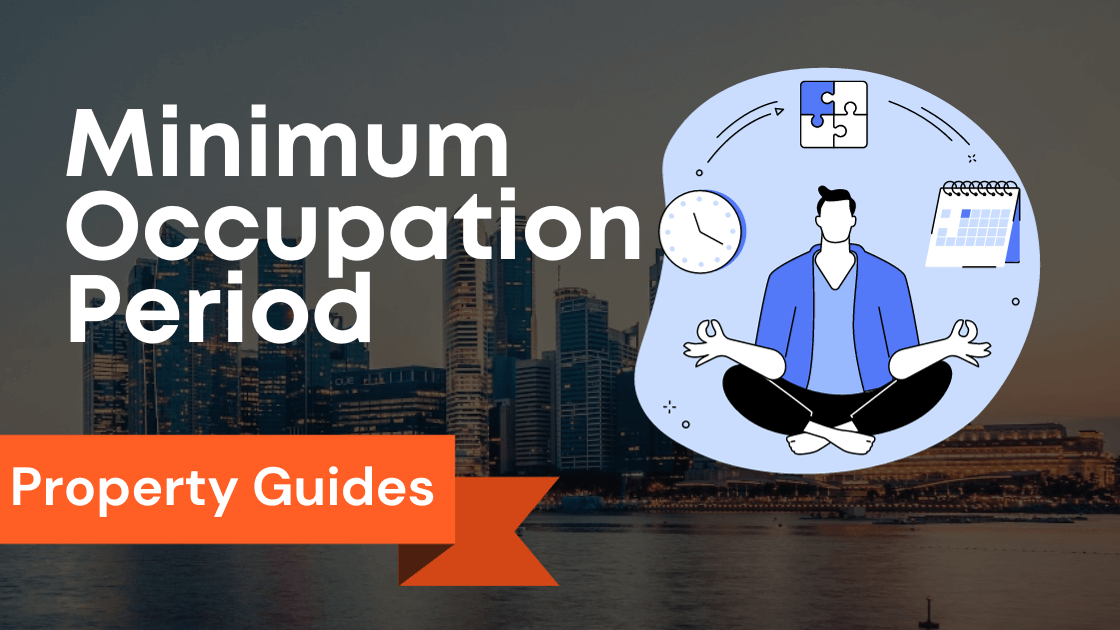
In the bustling city-state of Singapore, where the real estate market is highly competitive and constantly evolving, potential buyers need to stay informed about the different property options available.
One such option is Building Under Construction (BUC) properties.
Understanding BUC properties’ importance is crucial when navigating the Singapore property market.
What is Building Under Construction (BUC) in Singapore?
Building Under Construction, commonly referred to as BUC, refers to properties currently being developed but still need to be completed.
These properties are available for purchase before they are fully built, offering buyers the opportunity to invest in a property that will be ready.
BUC properties can include residential condominiums, commercial buildings, and mixed-use developments.
Importance of understanding BUC properties
Understanding BUC properties is vital for potential buyers in Singapore for several reasons.
Firstly, purchasing a BUC property is often cheaper than completed properties.
This can be advantageous for buyers looking for more affordable options or those who wish to secure a property at a lower price before its completion.
Secondly, investing in BUC properties gives buyers a say in customizing their future property.
Buyers may have the opportunity to choose from a selection of unit types, layouts, and finishes, creating a more personalized living or working space.
Lastly, buying a BUC property offers buyers the potential for capital appreciation.
As the property nears completion, its value may increase, allowing buyers to sell the property at a higher price or enjoy more significant returns on their investment.
Overview of the blog post topics
This blog post will explore various aspects of BUC properties in Singapore.
We will explore the financing options, payment schemes developers offer, and the potential risks and benefits of purchasing BUC properties.
By the end of this post, readers will have a comprehensive understanding of BUC properties and be better equipped to make informed decisions in the Singapore property market.
Key Takeaways
- Understanding BUC Properties: BUC stands for Building Under Construction. These properties are not yet completed but offer a chance to invest in the future real estate market.
- Advantages of BUC Properties: Buying BUC properties often comes at a lower price, allows for customization, and offers potential for capital appreciation.
- Loan Options for BUC Properties: Two common loan options for BUC properties are the Progressive Payment Scheme and the Deferred Payment Scheme. Each has its own features and eligibility criteria.
- Choosing the Right Loan: Consider factors like interest rates, loan tenure, and payment schemes when selecting the right BUC loan for your needs.
- Progressive Payment Scheme: This structured payment plan allows buyers to pay for BUC properties in stages as construction progresses, offering better financial planning.
- Buying Private BUC Properties: A step-by-step guide for purchasing private BUC properties, including research, engaging a property agent, and understanding payment schemes.
- Importance of the Sales and Purchase Agreement (SPA): The SPA is a crucial legal document that outlines the terms and conditions of the property purchase, including price and payment schedule.
- Key Considerations When Buying BUC: Key factors include the developer’s reputation, the property’s location, project plans, and specifications. Avoid common pitfalls like underestimating costs and having unrealistic expectations.
- Considerations During BUC Purchase: Understand the purchase agreement, roles of buyers and sellers, payment schedule, completion date, and defect liability period.
- Completed Properties vs. BUC Properties: Completed properties offer immediate possession but can be pricier. BUC properties are more affordable but require patience as they are under construction. Choose based on your preferences and priorities.
Types of BUC Loans
Many aspiring homeowners consider purchasing a Building Under Construction (BUC) property in Singapore’s vibrant real estate market.
These properties offer a unique opportunity to customize your dream home from the ground up.
However, financing a BUC property requires a specific type of loan.
In this article, we will explore the different BUC loan options available in Singapore and provide critical information to help you make an informed decision.
Common types of BUC loans available in Singapore
When it comes to BUC loans in Singapore, there are two main types to consider:
- Progressive Payment Scheme: Under this scheme, you make a series of payments as the Construction progresses. These payments are typically tied to specific construction milestones. This loan offers flexibility, allowing you to manage your cash flow effectively throughout the construction process.
- Deferred Payment Scheme: With this scheme, you only start making payments after completing the BUC property. During the construction period, you are not required to make any installments. This option provides greater financial flexibility during the construction phase.
Key features and eligibility criteria
Each BUC loan option has its key features and eligibility criteria.
It is essential to carefully consider these factors before making a decision.
Generally, eligibility is based on factors such as income, credit history, and the maximum loan quantum offered by the bank.
Key features include loan tenure, interest rates, loan-to-value ratio, and early repayment penalties.
It is advisable to compare these features across different banks to find the best fit for your financial situation.
Comparison of different BUC loan options
To make an informed decision, comparing the different BUC loan options is crucial.
Consider factors such as interest rates, loan tenure, payment schemes, and additional fees or charges.
Additionally, seek expert advice from mortgage specialists or engage the services of a professional real estate agent who can guide you through the process and provide you with tailored recommendations based on your specific needs.
Remember, choosing the right BUC loan is essential to ensure a smooth and worry-free financing experience for your dream home.
Progressive Payment Scheme for BUC

Singapore’s Building Under Construction (BUC) market is a popular option for investing in real estate.
However, many potential buyers may need to become more familiar with the payment process for BUC properties.
That’s where the progressive payment scheme comes into play.
Understanding the progressive payment scheme
The progressive payment scheme is a structured payment plan that is commonly used in Singapore for BUC properties.
It allows buyers to pay for their property in stages as the Construction progresses.
This payment schedule is predetermined and typically follows a set timeline, ensuring transparency and accountability for both buyers and developers.
How the payment scheme works for BUC properties
Under the progressive payment scheme, buyers make payments based on the completion stages of the development.
These stages are typically divided into percentages of the purchase price, with each step representing a milestone in the construction process.
For example, the payment schedule may include the foundation, structural works, and project completion stages.
The sales and purchase agreement usually outlines the payment schedule, providing clear guidelines for both parties.
By following this scheme, buyers have more control over their finances.
They can plan their payments accordingly, and developers can ensure that the project is funded adequately throughout the construction period.
Advantages and considerations of progressive payments
The progressive payment scheme offers several advantages for both buyers and developers.
For buyers, it allows for better financial planning as payments are spread out over time.
This can be especially beneficial for those requiring financing or other financial commitments.
Developers also benefit from the progressive payment scheme, ensuring steady cash flow throughout Construction.
This helps to mitigate financial risks and allows for better project management.
However, buyers need to consider the terms and conditions of the payment schedule.
Factors such as interest rates, late payment fees, and completion timelines should be reviewed and understood before entering any agreement.
Consulting a real estate professional or lawyer can also provide guidance and ensure a smooth process.
Overall, the progressive payment scheme is a valuable tool in the BUC market in Singapore.
It provides a structured and transparent payment plan that benefits buyers and developers, making purchasing a BUC property more manageable and secure.
Buying a Private Building Under Construction (BUC) in Singapore

Are you considering purchasing a private building under Construction (BUC) in Singapore?
This article will guide you through the process step-by-step, provide insights into the importance of the Sales and Purchase Agreement (SPA), and highlight things to note before signing the Option to Purchase (OTP).
Step-by-step guide to purchasing a private BUC property
- Do your research: Identify the BUC projects that align with your requirements and budget. Research the developer’s track record and reputation.
- Engage a property agent: A reliable agent will help you navigate the purchasing process, negotiate terms, and provide valuable insights.
- View the show flat: Visit the show flat to get a sense of the units’ quality, layout, and design. Take note of any additional charges or optional upgrades.
- Understand payment schemes: Private BUC properties generally offer progressive payment schemes. Familiarize yourself with the payment schedule, including down payments and installment options.
- Secure financing: Arrange for a mortgage loan or ensure you have sufficient funds to finance the purchase.
Importance of the Sales and Purchase Agreement (SPA)
The SPA is a legally binding document outlining the property purchase terms and conditions.
It covers essential aspects such as the purchase price, payment schedule, completion date, and unit handover.
Engage a lawyer to thoroughly review the SPA before signing to protect your interests.
Things to take note before signing the Option to Purchase (OTP)
The OTP is a document that grants the buyer the exclusive right to purchase the property within a specified period.
Before signing the OTP, consider the following:
- Understand the validity period: Ensure you have ample time to decide and seek legal advice if necessary.
- Review additional clauses: Take note of any other provisions in the OTP, such as the forfeiture of the booking fee or late payment penalties.
- Perform due diligence: Conduct a thorough inspection of the unit and its surroundings to identify potential issues or concerns.
By following these steps and being diligent in your research and due diligence, you can successfully navigate the process of purchasing a private BUC property in Singapore.
Repayment Process for BUC Loan

Overview of loan repayments for BUC properties
If you are considering purchasing a building under Construction (BUC) property in Singapore, it is essential to understand the repayment process for your loan.
The loan repayment structure for BUC properties differs from completed properties, so it is necessary to be aware of the details.
There are a few key points to remember regarding loan repayments for BUC properties.
First, the loan quantum is progressively disbursed rather than as a lump sum.
This means that the funds are released in stages as the Construction progresses.
Each stage is known as a disbursement request, and it is essential to coordinate with your lender and the developer to ensure a smooth payment process.
Additionally, the interest on your loan will be charged based on the amount disbursed.
This means that you will only be paying interest on the funds that have been released, not on the total loan amount.
Investigating this in your financial planning ensures sufficient funds to cover the repayments.
Factors to consider when planning loan repayments
When planning your loan repayments for a BUC property, several factors must be considered.
First, assess your financial capacity and ensure you can comfortably afford the monthly repayments.
This includes weighing any potential increases in expenses such as property taxes, maintenance fees, and utility bills.
In addition to your financial capacity, you should also consider the length of the loan tenure.
The longer the term, the lower your monthly repayments will be, but the more interest you will pay over the long run.
Balancing the loan tenure with your financial goals and capabilities is crucial in making an informed decision.
Furthermore, staying updated with the construction progress of the BUC property is essential.
This will allow you to coordinate with the developer and lender for the timely disbursement of funds and ensure that the loan repayments align with the construction timeline.
By considering these factors and understanding the repayment process for BUC properties in Singapore, you can make informed decisions and manage your loan repayments effectively.
Essential Considerations when Buying a BUC

Key factors to consider before buying a BUC property
Buying a BUC (Building Under Construction) property in Singapore can be an exciting venture, but it’s crucial to consider the purchase carefully.
Here are some key factors to keep in mind before making the decision:
- Developer Reputation: Research the track record and reputation of the developer. Choose a reputable developer with a solid history of delivering quality projects.
- Location: Consider the location of the BUC property. Research the neighborhood, proximity to amenities, public transportation, and future development plans. A well-connected and desirable location can contribute to the property’s future value.
- Project Plans and Specifications: Review the property’s project plans, layout, and specifications. Ensure the design, size, and features align with your needs and preferences. Take note of the expected completion date and any potential delays.
Common pitfalls to avoid when purchasing a BUC
While buying a BUC property can be lucrative, there are common pitfalls that buyers should avoid to make a wise investment:
- Overlooking Legal Matters: Ensure that all legal matters are meticulously reviewed. Engage a lawyer to handle the legal documentation and clarify any doubts regarding ownership, payment terms, and potential penalties.
- Underestimating Costs: Consider the additional costs involved beyond the purchase price, such as stamp duty, legal fees, agent fees, and renovation costs. Be prepared financially to cover these expenses.
- Unrealistic Expectations: Have realistic expectations regarding the completion date, rental income, and potential capital appreciation. Understand the risks and be patient, as the property market can fluctuate.
Buying a BUC property in Singapore requires thorough research, careful planning, and informed decision-making.
Buyers can make a wise investment and secure their dream home or profitable asset by considering these key factors and avoiding common pitfalls.
Things to Take Note during the BUC Purchase

For those considering purchasing a Building Under Construction (BUC) property, it is crucial to be well-informed about the process and critical considerations.
This article will provide an overview of essential aspects to note during a BUC purchase in Singapore.
Understanding the purchase agreement and its clauses
Before committing to a BUC purchase, it is essential to understand the purchase agreement and its clauses thoroughly.
Some key points to consider include:
- Payment Schedule: The purchase agreement will outline the payment schedule, including the down payment, progressive payments, and the final payment upon completion. It is essential to comprehend each payment milestone to ensure financial readiness fully.
- Completion Date: The purchase agreement should clearly state the expected completion date. Buyers should consider potential delays and understand the developer’s obligations regarding timely completion.
- Defect Liability Period: The purchase agreement should include a defect liability period, during which the developer is responsible for rectifying any defects in the property. Buyers should be aware of the duration of this period and the process for reporting and resolving defects.
Responsibilities and obligations of buyers and sellers
Buyers and sellers in a BUC transaction have specific responsibilities and obligations.
It is essential to understand these roles to ensure a smooth and successful purchase:
- Buyer’s Responsibilities: Buyers should conduct thorough due diligence on the developer, understand the project’s specifications and features, and seek legal advice before signing the purchase agreement. Buyers should also ensure they have the necessary financing for the property.
- Seller’s Obligations: Sellers, typically developers, are responsible for completing the project within the agreed timeframe, delivering the property by the specifications, and rectifying defects during the defect liability period.
By understanding the purchase agreement and the responsibilities of both buyers and sellers, individuals can make informed decisions when purchasing a BUC property in Singapore.
Note: This article serves as a general guide, and readers are advised to seek professional advice specific to their circumstances.
Completed Properties vs. BUC Properties

In Singapore’s bustling real estate market, potential buyers often choose between completed properties and properties that are still under Construction, commonly known as Building Under Construction (BUC) properties.
Understanding the advantages and disadvantages of each option can help buyers make informed decisions.
Comparing the benefits and drawbacks of buying completed properties and BUC properties
Completed Properties: Investing in a completed property offers immediate possession and the ability to move in immediately.
Buyers can physically inspect the property and understand its quality, layout, and surroundings.
Additionally, completed properties often come with existing amenities and facilities, providing convenience to homeowners.
However, completed properties may have a higher purchase price due to their ready-to-move-in status.
BUC Properties: Opting for a BUC property allows buyers to enjoy a brand-new home with modern and up-to-date features.
These properties are often priced lower than completed properties as uncertainties may occur during Construction.
However, buyers must be patient and willing to wait for the completion of the project, which can take several months or even years.
Understanding the differences in pricing and availability
Pricing: BUC properties generally offer more flexibility in terms of pricing.
Developers often provide attractive discounts or incentives to encourage buyers to commit early.
As the Construction progresses, the property value may also appreciate, providing potential capital gains in the future.
On the other hand, completed properties tend to have a fixed price, although negotiations may still be possible.
Availability: While completed properties may have limited units, BUC properties often have a more comprehensive selection as developers release project phases over time.
This gives buyers more choices regarding location, layout, size, and view.
However, popular BUC projects may experience high demand, leading to higher buyer competition.
In conclusion, deciding between buying a completed property or a BUC property in Singapore depends on individual preferences and priorities.
Both options have benefits and drawbacks, and buyers should carefully consider factors such as immediate possession, pricing, availability, and personal preference before deciding.
Conclusion
After considering the various aspects of building under Construction (BUC) properties in Singapore, it is clear that there are both advantages and considerations when purchasing a property still being built.
Here are the key points to keep in mind:
- Financing: If you are planning to finance your purchase with a bank loan, it is essential to understand the progressive payment schedule. This means that the loan commences at the first disbursement, and payments are made at each stage of the property construction. Make sure to consider your financial capabilities and plan accordingly carefully.
- Additional Buyer’s Stamp Duty (ABSD): Buyers may be subject to ABSD, an extra tax imposed on certain property purchases. Take into account this additional cost when calculating your budget.
- Commitment: When you purchase a BUC property, you commit to it before completion. This means that if you decide to buy it from another buyer at a later stage, you may be called upon to pay several steps of progressive payments.
- Risks: There are inherent risks involved in buying a property still under Construction. Delays in Construction or changes in building regulations could impact the completion timeline. However, with careful consideration and research, these risks can be minimized.
- Temporary Occupation Permit (TOP): The TOP is an essential milestone in completing a BUC property. It signifies that the building has reached a stage where it is suitable for occupation. This is when you can connect water, cpf, privacy policy, need to pay, unlike a loan, free of charge, Home Buying, electricity, and gas supplies, and eventually pick up your keys and move in.
In conclusion, buying a BUC property requires careful consideration, planning, and understanding of the processes involved.
It is worth waiting for some buyers looking for specific features or locations.
However, it is essential to be aware of the potential risks and factors that may affect the progress of the Construction.
Consulting with conveyancing and real estate experts can provide valuable guidance.
Remember always to do your due diligence. The stage of construction building is completed. Understand the terms and conditions, and ensure you are financially prepared for the commitment.
With thorough research and proper planning, purchasing a BUC property can be a rewarding experience.
Frequently Asked Questions
What is a condo?
A condo, short for condominium, is a type of housing where a person owns a specific unit within a larger building or community.
Owners share common areas and amenities like swimming pools, gyms, and gardens.
What is the focus of Heeton Holdings Limited?
Heeton Holdings Limited is focused on property development.
How can I get a home loan in Singapore?
To get a home loan in Singapore, you can approach various banks or financial institutions.
They will assess your financial situation, creditworthiness, and the property you are interested in to determine the loan amount and interest rate you are eligible for.
What is HDB?
HDB stands for Housing and Development Board, the government authority responsible for public housing in Singapore.
HDB flats are subsidized public housing units that are affordable for Singaporean citizens.
What is a purchase agreement?
A purchase agreement is a legally binding contract between a buyer and a seller outlining the terms and conditions of a property purchase.
It includes details such as the sale price, payment terms, and agreed-upon conditions.
What is OTP?
OTP, short for Option to Purchase, is a document that grants the buyer of a property the exclusive right to purchase it within a specified period.
A payment of an option fee usually accompanies it.
How does purchasing a private building differ from an HDB flat?
Purchasing a private building, such as a condo unit or a landed property, differs from buying an HDB flat, as private properties are not subsidized and have fewer restrictions on ownership, usage, and resale.
The purchase process and financing options also vary.
What is a Sales and Purchase Agreement (PPS)?
The Sales and Purchase Agreement, or PPS, is a legal contract between the buyer and the property seller.
It outlines the terms and conditions of the purchase, including the sale price, payment schedule, and other relevant details.
What are loan repayments?
Loan repayments refer to the monthly payments that a borrower makes to repay the principal amount and interest accrued on a loan.
These repayments are typically made over 20-30 years for home loans.
Is there a step-by-step guide to buying a property in Singapore?
Various resources and guides are available that provide a step-by-step overview of the property buying process in Singapore.
These guides cover financing options, property searches, legal procedures, etc.












